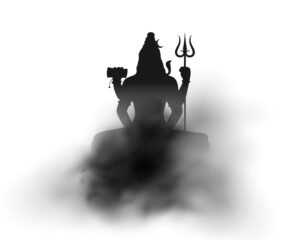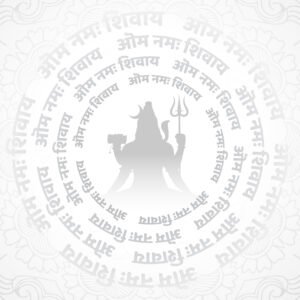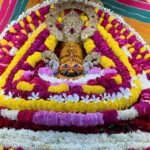Now Reading: Mahadev: The Divine Glory of Lord Shiva During Sawan Month
-
01
Mahadev: The Divine Glory of Lord Shiva During Sawan Month
Mahadev: The Divine Glory of Lord Shiva During Sawan Month

Mahadev: The Infinite Glory of Lord Shiva in the Sacred Month of Sawan
As the first drops of monsoon rain kiss the Earth, a spiritual wave washes over the hearts of millions. Yes, the sacred month of Sawan has begun—a time when the air is infused with devotion, the skies echo with chants of “Har Har Mahadev,” and the soul feels naturally drawn to the divine presence of Mahadev, Lord Shiva.
For me, this month has always been special—not just because of its spiritual significance but also because of the peace and purity it brings to life. Every year, as Sawan begins, I feel an unexplainable energy, a deep inner call to reconnect with Shiv Shakti, to let go of worldly chaos and surrender to the serenity that Mahadev represents.

Who Is Mahadev? The Lord of All Lords
The name Mahadev means “The Great God.” He is one of the holy trinity—Brahma (the creator), Vishnu (the preserver), and Mahadev (the destroyer). But Shiva is not just a destroyer; he is the transformer. He breaks illusions, destroys ego, and clears our path for inner awakening.
Unlike other deities adorned with gold and jewels, Mahadev sits bare-chested in deep meditation on Mount Kailash, smeared with ashes, with a blue throat (Neelkanth) and a crescent moon on his head. This image alone teaches us volumes—simplicity, inner power, patience, and detachment.
Why Is Sawan So Dear to Mahadev?
According to Hindu mythology, during the Samudra Manthan (churning of the cosmic ocean), a deadly poison called Halahala emerged. It was Lord Shiva who drank this poison to save the world, and thus, his throat turned blue. To cool him down, the Devas (gods) began pouring sacred water on him—this ritual marks the origin of Kanwar Yatra, where devotees carry Ganga water to offer at Shiva temples during Sawan.
This act of self-sacrifice shows why Mahadev is not just worshipped but deeply loved. He didn’t ask for devotion—he became the reason for it.
My Personal Connection with Mahadev
Growing up, I was always fascinated by Lord Shiva—not because someone told me to be, but because I felt something powerful yet peaceful whenever I saw his image. I remember visiting a small Shiva temple near our home every Monday during Sawan with my mother. The smell of bel patra, dhatura, bhasma, and ghee diya still lingers in my heart.
One monsoon morning during Sawan, I was going through a very difficult time—mentally and emotionally exhausted. On an impulse, I entered a nearby Shiva temple. As the pandit ji was chanting “Om Namah Shivaya,” I sat down and started crying silently. In that moment of surrender, I felt something I can never truly describe—a warmth, a sense of protection, as if Mahadev was silently telling me, “You’re not alone.”
Since that day, I’ve had an unshakable faith that no matter what life throws at me, Mahadev is watching. He doesn’t promise an easy life—but he promises to walk with you through it.

Rituals to Follow in Sawan for Mahadev’s Blessings
Sawan is not just a month—it’s a divine opportunity to purify our body, mind, and soul. Here are some authentic Sawan rituals that bring one closer to Lord Shiva:
1. Fasting on Mondays (Sawan Somvar Vrat)
Fasting on Mondays is one of the most powerful forms of devotion. It is said to fulfill desires, especially for unmarried women seeking a good life partner and for married couples seeking harmony.
2. Offering Bel Patra and Gangajal
Shiva loves simplicity. Offering bel leaves, water from the Ganga, milk, and honey on the Shivling is believed to cleanse karmic debts.
3. Chanting Mahamrityunjaya Mantra
“Om Tryambakam Yajamahe Sugandhim Pushtivardhanam…”
This powerful mantra is said to protect us from illnesses, fears, and premature death.
4. Reading Shiv Puran or Shiva Chalisa
Reading scriptures like the Shiv Puran, or even reciting the Shiva Chalisa daily, brings divine peace and inner clarity.
The Symbolism of Mahadev
Every part of Mahadev’s form is deeply symbolic:
- Trishul (Trident): Represents the three gunas—Sattva (balance), Rajas (activity), and Tamas (inertia).
- Damru (Drum): Signifies cosmic sound and rhythm of creation.
- Third Eye: The eye of wisdom. When opened, it destroys illusion and falsehood.
- Tiger Skin: Shows mastery over animalistic instincts.
- Snake Around His Neck: Represents control over fear and time.
In a way, Shiva teaches us that true power is not in controlling others—but in mastering oneself.
Mahadev in Modern Life: Why He Still Matters
In today’s world full of hustle, distractions, and stress, we often feel lost. But Mahadev’s path is the path of meditation, awareness, and detachment. He teaches us to stay centered in the middle of chaos. You don’t have to leave your job or home to follow Shiva. You just have to bring Shiva into your heart and mind.
Whether you’re a student struggling with anxiety, a parent juggling responsibilities, or a spiritual seeker wanting inner peace—Mahadev is for everyone. His arms are open, his gaze is calm, and his silence is louder than any sermon.
My Sawan Rituals: A Simple Yet Powerful Routine
Every Sawan, I follow a few rituals that help me feel connected with Mahadev on a deeper level:
- Early morning bath before sunrise
- Light a ghee diya in front of a small Shivling at home
- Offer raw milk, bel patra, and chant “Om Namah Shivaya” 108 times
- Avoid onion, garlic, and non-vegetarian food during the month
- Visit a nearby temple every Monday
- Maintain silence (maun vrat) for an hour daily—it brings surprising inner peace
These small rituals don’t take much time, but the spiritual strength they provide is immense.
Popular Shiva Temples to Visit in Sawan
If you’re planning a spiritual journey this month, here are some divine temples dedicated to Mahadev:
- Kashi Vishwanath, Varanasi – One of the 12 Jyotirlingas
- Kedarnath, Uttarakhand – The shrine that touches the heavens
- Somnath, Gujarat – A timeless example of Shiva’s power and resurrection
- Trimbakeshwar, Maharashtra – Sacred confluence of rivers and energies
- Mahakaleshwar, Ujjain – Known for its powerful Bhasma Aarti
Even visiting a small local Shiva temple during Sawan can be just as spiritually rewarding.
Powerful Shiva Quotes to Inspire You This Sawan
- “Shiva is not a god to be worshipped. He is a state to be experienced.”
- “When you are in deep surrender, Mahadev walks with you even in darkness.”
- “Shiva lives in those hearts which are simple, silent, and sincere.”
Living the Spirit of Mahadev Every Day
This Sawan, don’t just worship Mahadev—become his reflection. Let go of ego, practice kindness, meditate, chant, and live with honesty. Shiva doesn’t ask for wealth or grand rituals—he only asks for devotion.
Personally, this month is not just about tradition for me—it’s about transformation. Every Sawan brings a new lesson, a deeper connection, and a stronger inner foundation. And every time I close my eyes and whisper “Om Namah Shivaya,” I know Mahadev is listening.












